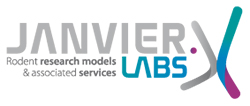The 3Rs - Past, Present and Future
DOI:
https://doi.org/10.23675/sjlas.v27i2.19Abstract
This paper sets offers a personal account of how the concepts of replacement, reduction and refinement can be traced through a brief history of the use of animals in science. It considers how the 3Rs are reflected in current intent and practice, and speculates about how they will influence animal use and progress in the biological sciences in the future.
The scientific community, not its critics, must always be, and be seen to be, at the forefront of developing and implementing 3R strategies. Good welfare is a pre-requisite for good science, and ‘alternative methods’ are generally driven by a need to improve the model systems used. All of those involved with in-vivo animal research have moral and legal obligations to ensure that animal models are only used when
· they are scientifically valid,
· the benefits likely to accrue are judged to exceed the likely animal welfare cost,
· there are no available replacement alternatives, and
· the animal suffering likely to be caused has been minimised.
Public opinion and the political climate should not be hostile to the use of animals in science providing these principles are demonstrably applied and the scientific community offers sufficient justification for the use of animal models.
In practice a number of considerations have to be balanced to define the best 3R strategy. Research strategies and methods should be regularly challenged, reviewed and revised as continuous progress is made with respect to replacement, reduction and refinement opportunities. Whilst legislation can set the scene for refined science, real progress requires that funding bodies, the regulatory authorities, and the user community demonstrate their commitment to participating in the best and most humane science underpinned by an appropriate culture of care. Commitment to the 3Rs is essential to a successful science-base:
· To maintain public and political confidence and support.
· To continuously raise welfare standards.
· To support and facilitate better science.
Our improving knowledge of animal welfare and laboratory animal science sets the scene for further progress. This knowledge also reinforces the general principle that good welfare is a prerequisite for good science. Science tends to evolve from the empirical and descriptive to the mechanistic and problem solving. In the biological sciences this facilitates reduction, refinement and replacement strategies. Progress with ‘alternative methods’ should be science and welfare driven. There are obstacles to the general and rapid introduction of alternative methods: they must be validated, accepted by the scientific community, and reasonably and practically available. Publishing details of more refined methodology is still seen by some as less important than publishing the new science. Despite the progress that has been made with replacements, reduction and refinement there is still much to do. We should not be complacent. Hopefully the stage is already set to identify and remove some of the barriers that still exist to the development, promulgation and implementation replacement, and reduction and refinement alternatives.







